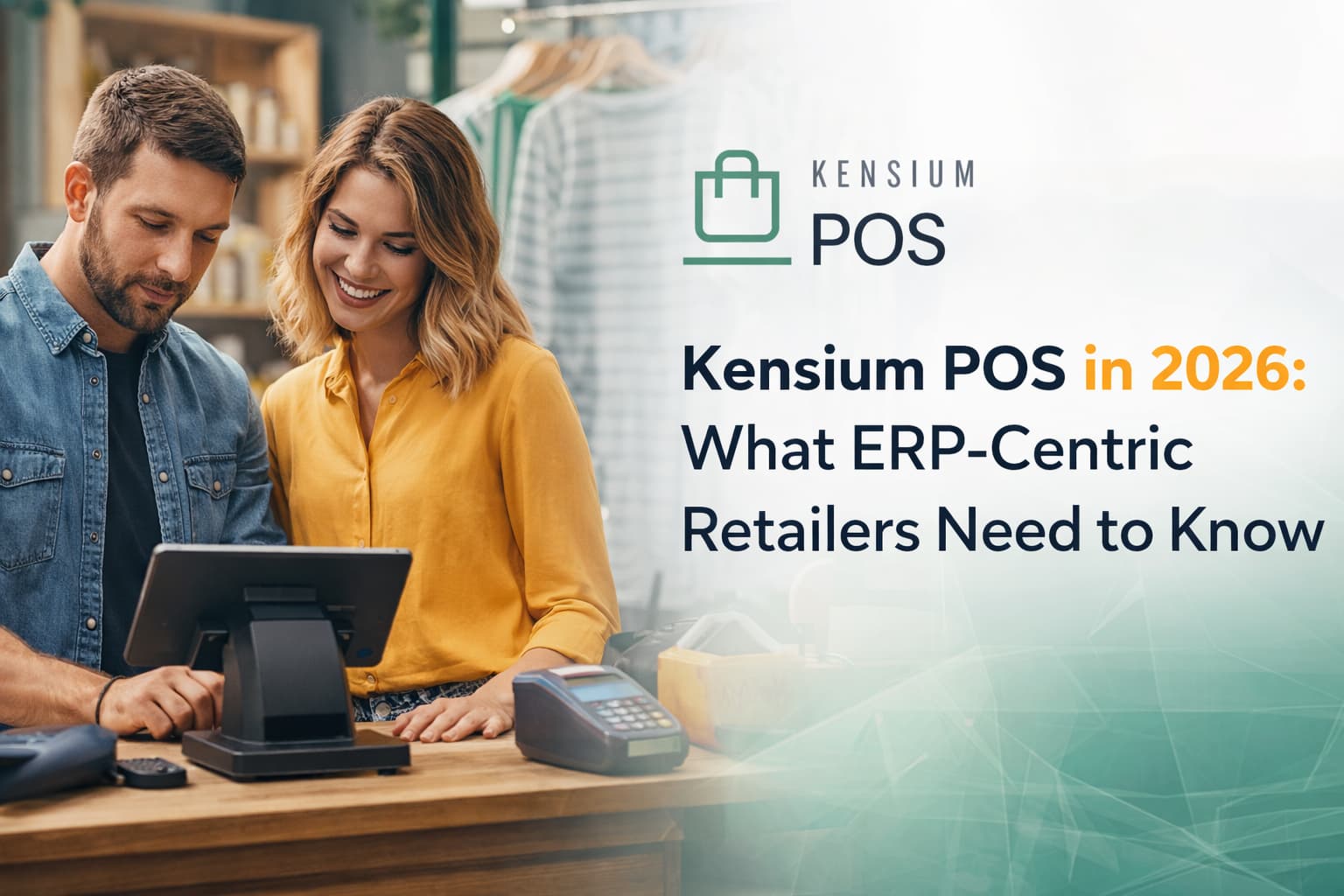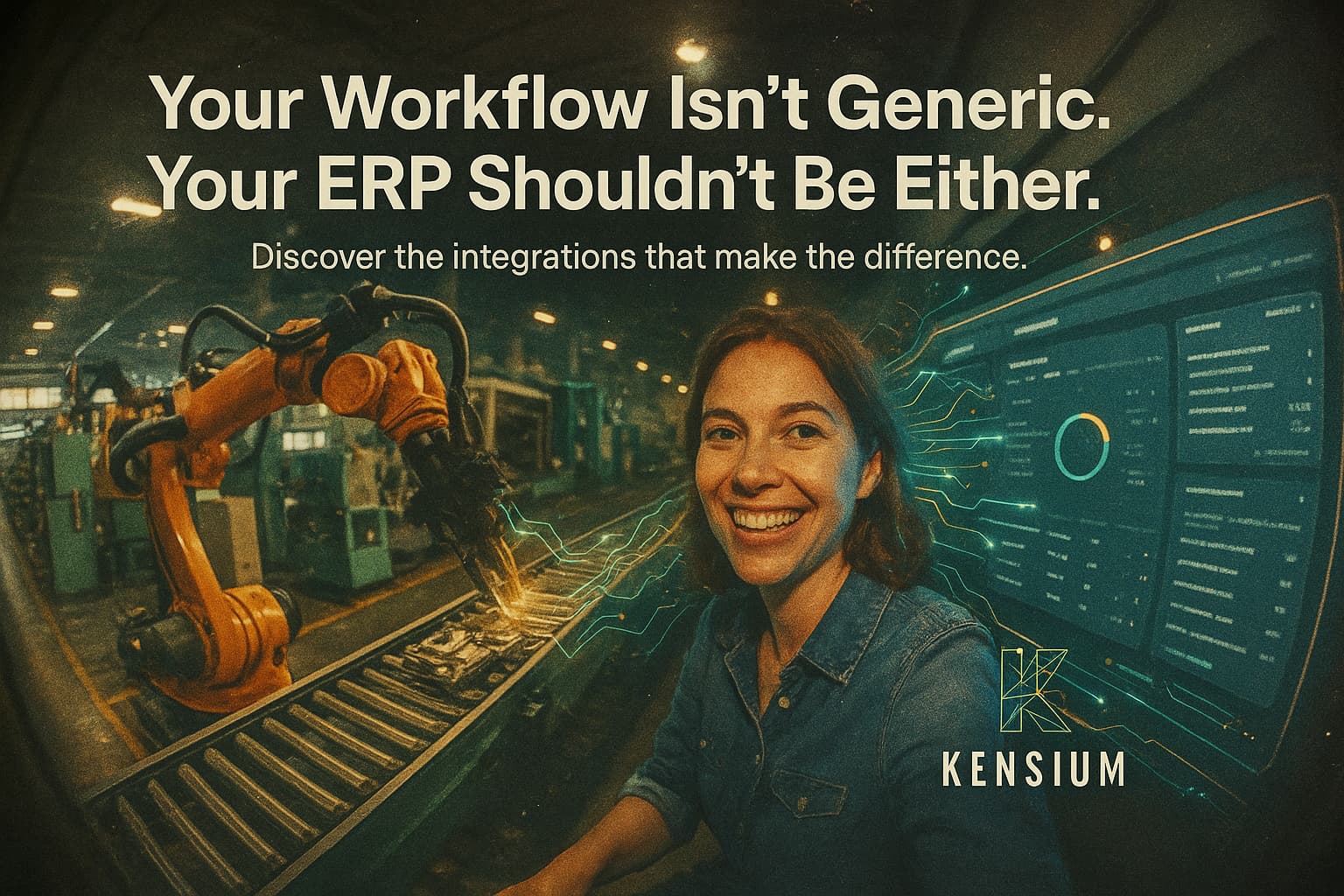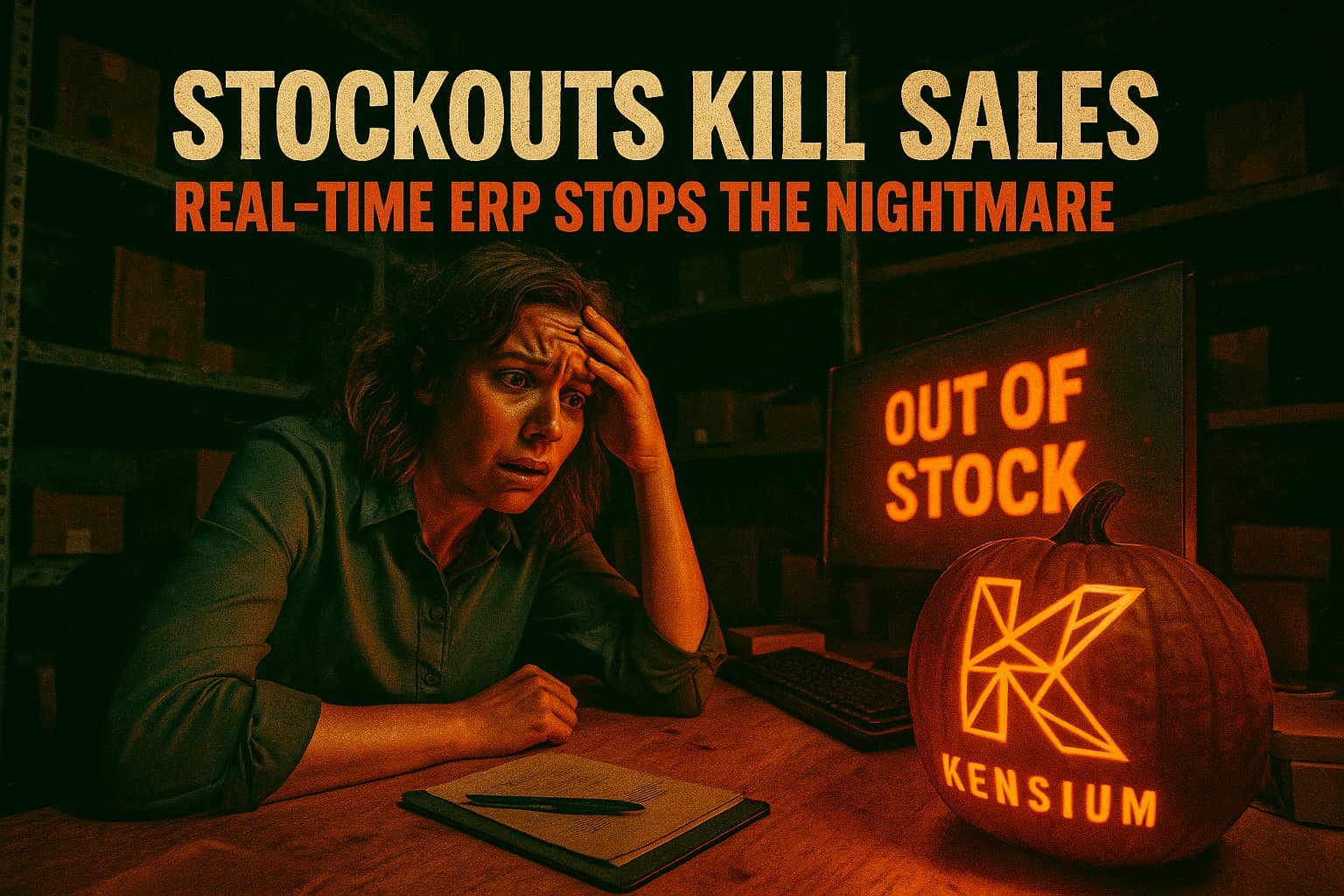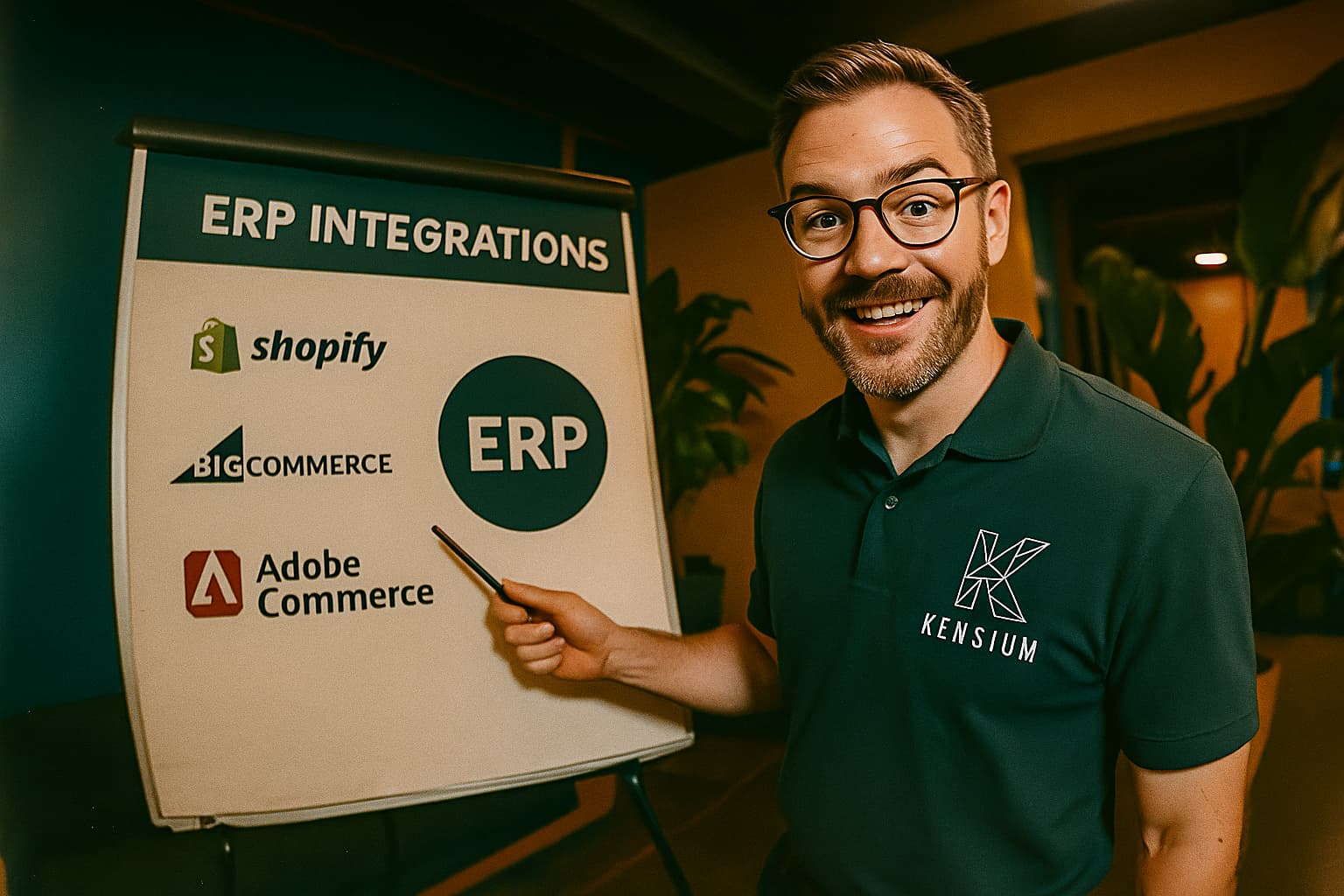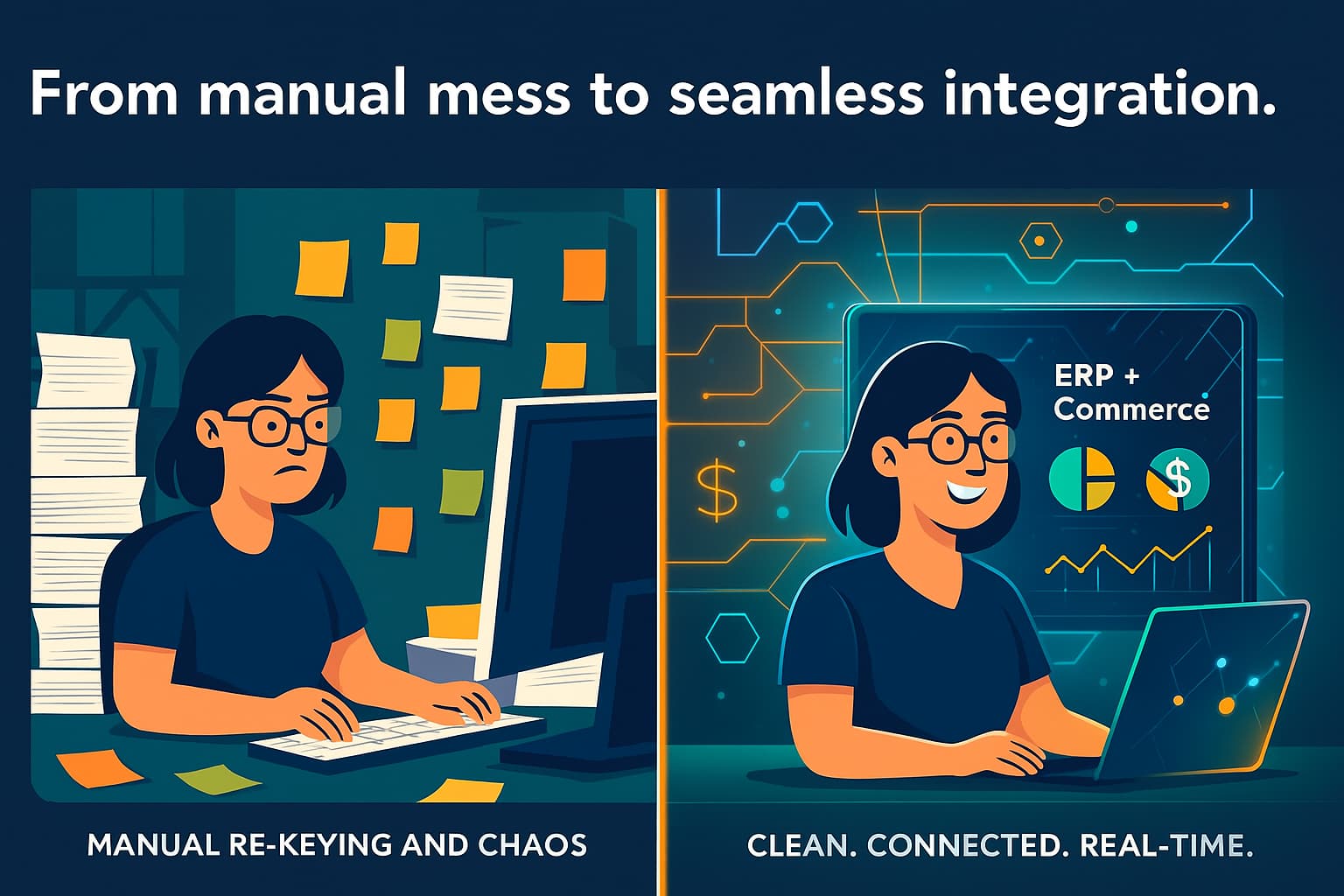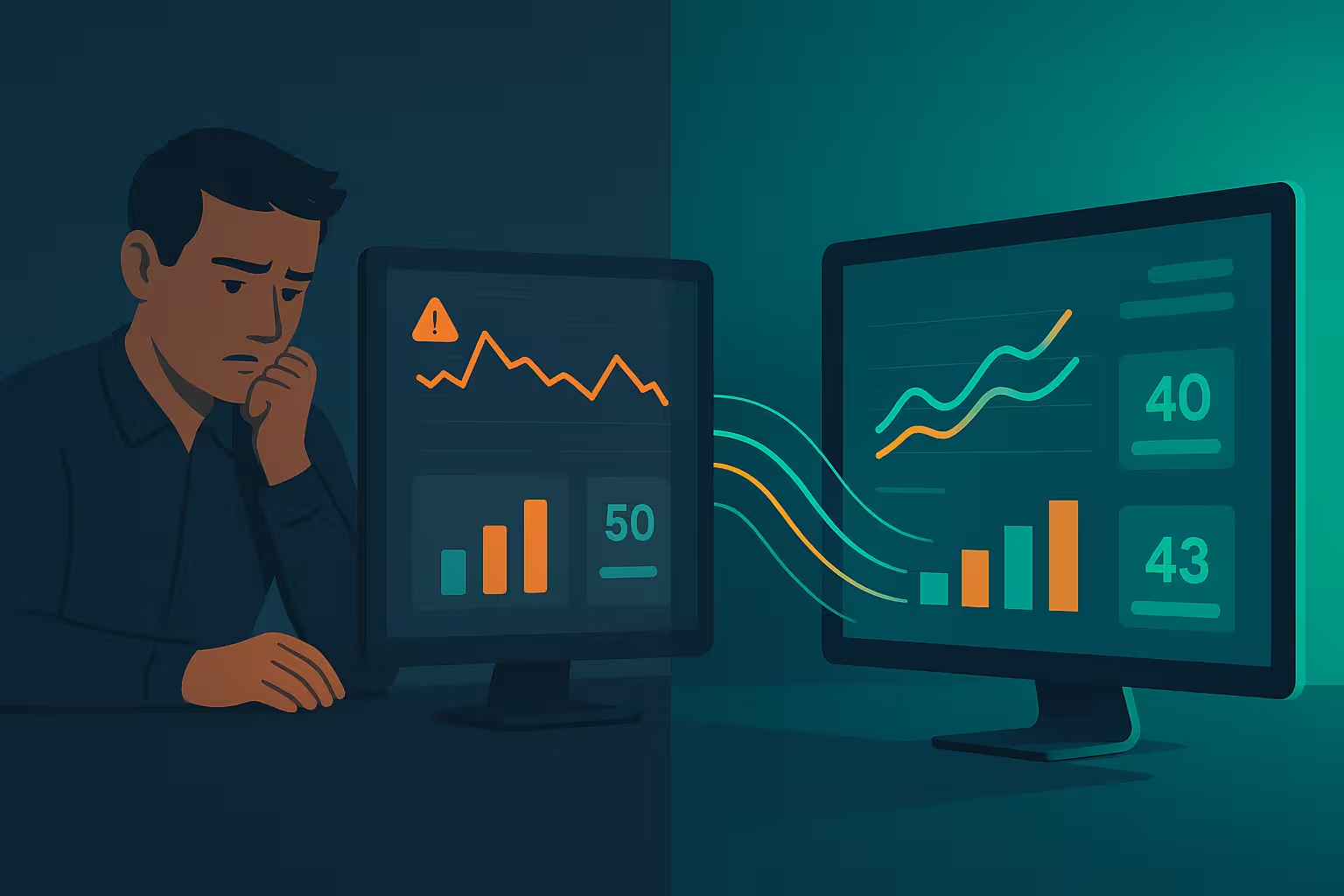-small.jpeg)
The constant evolution of ecommerce has transformed the way companies run their businesses. Modern online sales are fast-paced, constantly changing, and pushing technology to newer and higher limits. With new tools for ecommerce being developed daily, competition is at an all-time high. As a result, even small ecommerce brands feel pressured to bring new and innovative experiences to their customers. One way to manage these expectations is using an agile and customizable Enterprise Resource Management (ERP) platform.
Whether you're a B2B, B2C, or D2C ecommerce retailer, your main goal is to grow your business. However, as you grow, so does the complexity of operations and processes. For example, QuickBooks was enough to handle accounting, Salesforce managed your customer relationship management (CRM), and SkuVault handled inventory management when you first started. Still, these are all separate pieces to a more significant need. Managing three (or sometimes more) systems to run your day-to-day operations becomes clunky and takes up time that could be better spent making decisions to continue business growth.

When managing multiple systems start taking up tons of time, manual data entry and large spreadsheets of data get overwhelming. It's time to look at an all-in-one solution. This is where an ERP comes in. An ERP provides seamless integration of all the tools necessary to perform daily tasks efficiently and provides a better customer experience. In addition, the right ERP system future-proofs your business because it's built like your business, with growth at the center. Let's look at the top six ways an ERP system helps any size ecommerce retailer.
1. Increased Efficiency
Integrating an ERP solution with your ecommerce store helps transfer order information seamlessly between your website and the ERP. This integration reduces manual data entry and inaccurate item inventory and saves time and money on mundane tasks. When you combine your website and backend operations, your product catalog is managed in one place. It provides accurate data to make informed business decisions and increase efficiency from start to finish.
2. Better Decision-Making Power
A traditional ecommerce back-office operation involves multiple moving parts. Essential operations for your business need to work together harmoniously. Some of the functions an ERP can integrate are:
- Accounting
- Procurement/Inventory Management
- Vendor Management
- Warehouse Management
- Shipping
- Payment Processing
- CRM
Businesses often use multiple systems to manage these moving parts, and each area functions independently. However, without the ability for each system to talk to each other, you're setting yourself up to make decisions based on inaccurate data. For example, without accurate sales information, inventory management is affected. A customer may find a product, purchase it, and then find out it's back-ordered and delayed shipping. This creates a bad experience for the customer, and they likely won't return to make another purchase.
An ERP solves this problem with continuous communication between systems and accurate inventory data to ensure that the customer gets what they want and you gain a new customer, increasing profits. A modern cloud-based ERP system manages all your operations in a central location, providing a better customer experience and relieving your back-office teams of the stress of managing multiple systems and hoping the information is correct.

3. Cost Savings
While the up-front cost of implementing a new operations management system may seem expensive, the cost savings of having all your systems in one place saves you money in the long run. Most applications for each part of your business charge subscription fees, licensing/user fees, and additional costs for new software, hardware, and upgrades. Once your ERP system is created and live, the bill you'll receive is an all-in-one price for everything. No more managing the costs of each system means increased profits as your business grows.
Centralizing your data saves you money in multiple ways. You can manage your inventory and vendors, ensuring that you have the products on hand and ready to be shipped once ordered. With better inventory data, you avoid costly storage of items you have too much or running out of items because the inventory data hasn't been updated yet. You can also integrate shipping solutions to find the best price for the delivery.
4. Financial Accuracy
QuickBooks may be able to handle your general ledger, accounts payable, and accounts receivable. Still, a cloud-based ERP solution manages all these accounting tasks while supplying real-time ecommerce updates. For example, when a sale comes into your ERP solution, it immediately shows up in a sales order and is populated to your financial statements. As soon as the payment is submitted, it shows as revenue. In addition to accurately tracking sales data, an ERP system can audit your finances, inventory, customers, and sales.

Another benefit of using an ERP for your accounting is meeting compliance regulations. The right ERP ensures your business's financial documents comply with Generally Accepted Accounting Principles (GAAP) and International Financial Reporting Standards (IFRS). And since you're taking payments online, it helps ensure PCI compliance by encrypting sensitive customer data.
5. Omni-Channel Support
Whether you have a physical store as well as an online store, or you're primarily an online seller working with your website and listing your products in marketplaces like Amazon or eBay, it's critical to have the capability to manage that inventory across multiple locations and channels. Integrating an ERP with your store, point of sale, and marketplaces allows you to improve customer service significantly. Think of an ERP as the hub that all sales channels connect to. So, for example, a customer can purchase an item online and pick it up in your physical store. This saves your customers time looking at items in your store, and it saves you money by offering the products people want and providing in-person contact on the customer's terms.
6. Customer Service
Studies show that customer experience overtakes price and product during the purchase process. Therefore, tracking customer interactions, responding quickly to customer questions, and monitoring sales performance is critical. Since customers pay more for products because of exceptional customer service, you need an ERP system to help you track their purchases, manage issues that arise during and after the purchase, and keep customers happy with a more personalized checkout experience. An ERP can do all this when integrated with your website.
So, How Do You Find The Right ERP?
Many products on the market claim to be the perfect ERP, but few have the statistics and experience to prove it. Acumatica Cloud ERP is an industry leader in providing a comprehensive solution to all your business needs. It is highly flexible and customizable, so you only have the functions you need and no unnecessary ones just because it came with the package. In addition, Acumatica Cloud ERP offers real-time data visibility and monitors all your operations, helping you increase efficiency and focus on better decision-making.
Get Started With Kensium
Kensium is the preferred commerce partner of Acumatica. We have the knowledge and expertise to build an ERP solution to meet your immediate needs and offer room for future growth. Our experienced teams understand the unique challenges of ecommerce and the importance of exceptional customer service. If you're ready to up your ecommerce game, Kensium has the skills to consolidate your website and backend system for a single source of truth. Contact us today to learn more about Acumatica Cloud ERP.








.png)




